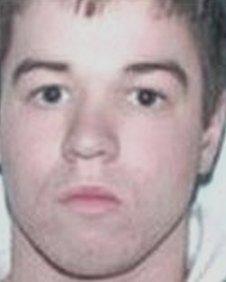Sam Hallam appeals against chef murder conviction
- Published

Sam Hallam was jailed for life in 2005 over the murder
A man found guilty of a 2004 gang stabbing murder was the victim of a "serious miscarriage of justice", the Court of Appeal has heard.
Sam Hallam was 18 when he was convicted in 2005 for the killing of chef Essayas Kassahun, 21, in Clerkenwell in London.
The court heard there was a failure by police to investigate his alibi, and witnesses who put him at the scene of the murder were unreliable.
Three judges will decide whether the conviction should be quashed or upheld.
The appeal judges are re-examining Hallam's conviction after it was referred to the court by the Criminal Cases Review Commission (CCRC), the independent body which investigates possible miscarriages of justice.
'Manifestly unreliable'
Hallam's QC Henry Blaxland told the three appeal judges there was new evidence relating to the "circumstances and reliability" of his client's identification and alleged presence at the scene.
Mr Blaxland argued that the identification evidence given by two witnesses was "so manifestly unreliable that the appellant's submission of no case to answer should have been allowed".
Fresh material included evidence from an acquitted co-accused that Hallam was not present at the scene and post-trial evidence from the appellant's mobile telephone relating to his whereabouts on the evening of the crime.
Mr Blaxland said: "It is our case that this appellant Sam Hallam - and I put it boldly - has been the victim of a serious miscarriage of justice brought about by a combination of manifestly unreliable identification evidence, the apparent failure of his own alibi, failure by police properly to investigate his alibi and non-disclosure by the prosecution of material that could have supported his case."
Mr Kassahun died after being attacked by a group of youths on the St Luke's Estate in Clerkenwell in central London October 2004.
He was stabbed in the head, never regained consciousness and died in hospital two days later.
The prosecution case was based principally on the evidence of two witnesses who said they were present at the murder scene. They said they saw the then 17-year-old Hallam there and saw him take part in the fatal attack.
Hallam, who is serving a minimum term of 12 years, has always maintained he was elsewhere on the night of the killing.